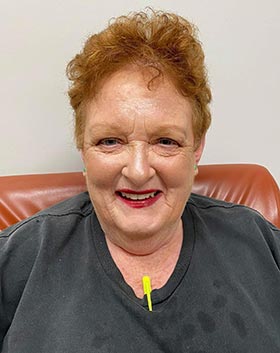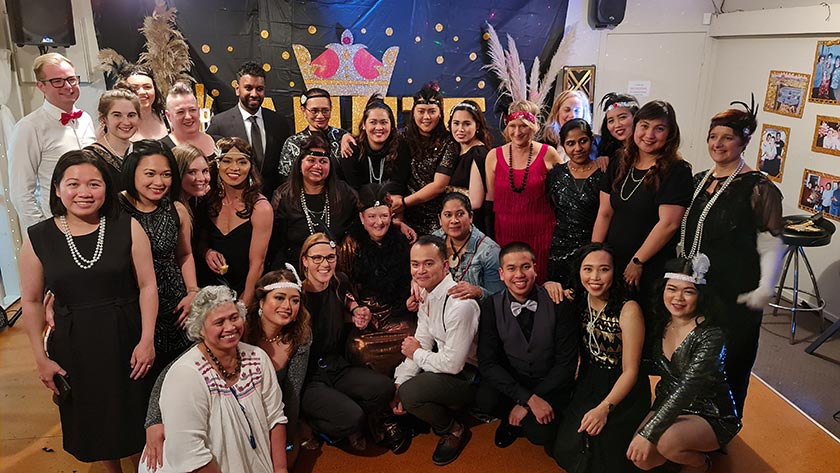“There has never been a day when I didn’t want to go to work,” Pahina says. “I just feel I made a difference in people’s day-to-day lives, and their families – I’ve really loved it.”
Pahina has known both sides of the ward, too. Not long after she began working as an HCA, a close relative was admitted to the hospital with Hodgkin’s lymphoma. They survived – but it was close.
“Seeing [the relative] sick, changed my perspective. [My job] was never about money. I have got my health and the necessities of life and I have been very happy in my job.”
Pahina has always felt a sense of purpose. “I used to feel I made a difference to their day, in their family dynamics.”
She has not been shy of making friends with patients either – despite the high mortality rate on her ward and emotional impact. “I’m not afraid to make those connections – if it makes a difference to them, me being close and personal, then I am.”
She has been to many patients’ funerals. But this doesn’t mean she’s unaffected. “I’ve cried buckets, and I’ve cried with them – if I need to say goodbye, I do it.” But she can also let go – she has to. “I don’t dwell on things, as I can’t change the outcomes, I can’t turn it around – so I just try to enjoy the good times and celebrate their lives, and think ‘it wasn’t meant to be’.”
“You could walk around feeling sorry, thinking ‘oh, poor me’, but where does that get you? And it’s not about me, it’s about them.”
‘You have empathy’

She was managing a cleaning contract at the hospital in 1999 when the director of nursing at the time, Anita Bamford, suggested she take up a caregiving role. “I said ‘I don’t know if I would be any good’. She said ‘yes you would – you have empathy’.”
Along with the practical tasks – personal care, helping patients shower or eat, changing beds and checking equipment – Pahina sees making connections as part of her role. But increasing workloads have made it harder to find the time for this. “Talking to people is a huge part of my job, but there is less and less time for it.”
Pahina also had some All Black connections in the early 2000s and used to get a few of the players into the wards to cheer up patients – Andrew Mehrtens, Carlos Spencer, Richie McCaw, Piri Weepu – to name a few. She has tended to well-known New Zealanders along with every day people, such as the young teacher with terminal cancer who adored glitter and requested her coffin be covered in it. “She was the kindest person.”
Chair of the infection, prevention and control nurses college Carolyn Clissold, who works with Pahina at Wellington Hospital, said she had been an ardent NZNO member and an asset to the ward. “Annie often provides the personal touches of continuity, humour and cares to a very challenged group of patients. Along with the showers and washes, she offers a friendly face.”
The HCAs helped organise infection, prevention and control at ward level “and provide me with help and ideas for improvement”.
Pahina, who is 70, says the only reason she’s leaving is her “body is going – the arthritis”, after more than two decades during which she’s only taken seven days of sick leave. She says the senior team on the ward were very supportive and had made her job easy.
Now she intends to wake up and enjoy each day as it comes.





